Terrible travel advice that could RUIN your holiday
Advice to avoid
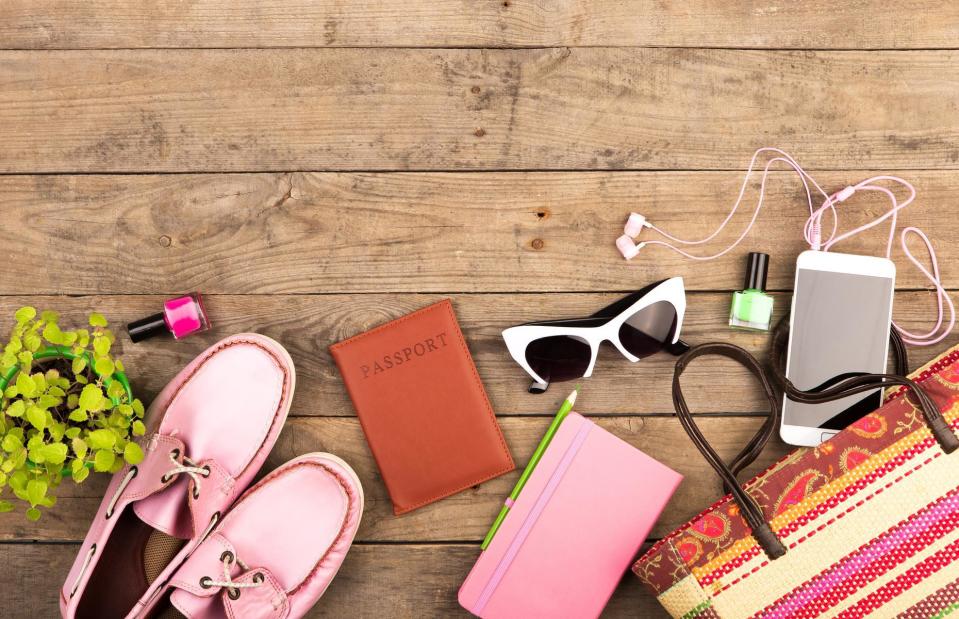
GoodMood/Shutterstock
From knocking yourself out on flights with sleeping pills to peeing on jellyfish stings, the world is awash with dodgy travel advice.
We take a look at some of the most commonly dispensed tips that will do little to improve your holiday.
Have a drink to help you sleep on the plane

Jwblinn/Shutterstock
We’ve all done it – you board the plane, giddy with excitement about your holiday, and order a boozy beverage in the belief it will later help you sleep. But not only does alcohol dehydrate you, some experts believe it affects you more in the air, due to the lower oxygen levels in the cabin. While drinking or not is a personal choice, we think we can all agree that waking up hungover or dribbling on the shoulder of the poor passenger next to you probably isn't the best way to start a trip.
Pick up currency at the airport

dnd_project/Shutterstock
Exchanging your cash at the airport may be the easy option, but it’s certainly not the cheapest. You’re likely to be stung by poor exchange rates – they know this is your last chance to get foreign currency on home soil. If you're unable to pick up currency before you fly, you might get a better rate if you order it in advance online and collect it at the airport when you arrive.
Use your credit card to buy foreign currency
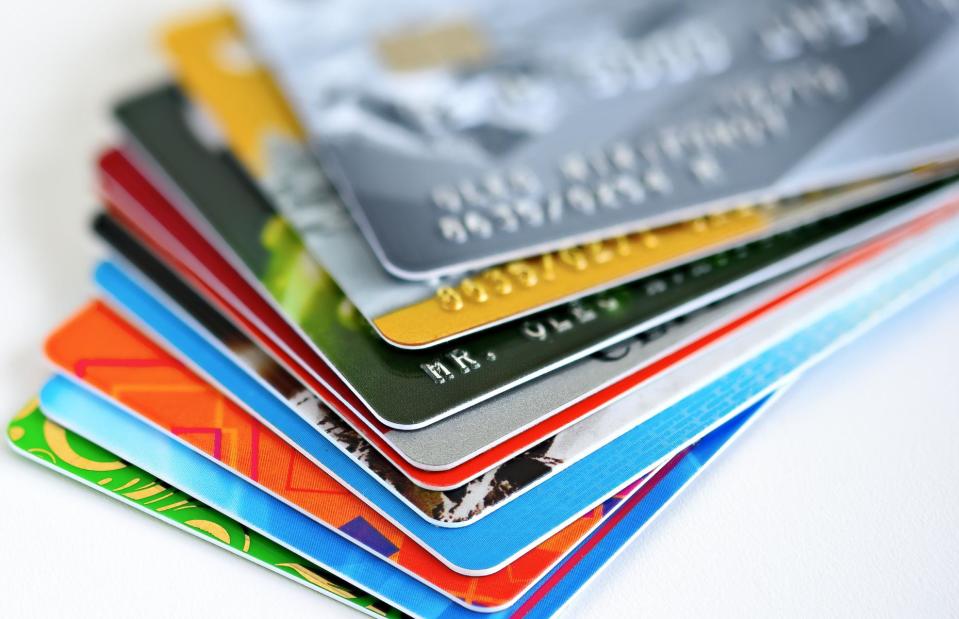
Olleg/Shutterstock
In many cases credit cards offer you invaluable protection but, when it comes to buying currency, reach for your debit card instead. Many credit cards charge a fee and, because the transaction counts as a cash withdrawal, it'll affect your credit score. If you’re going to be taking out cash whilst abroad, it’s worth checking what fees your card applies before you fly. If it charges you, apply for a specialist overseas credit card instead.
Wear your heaviest clothes on the flight
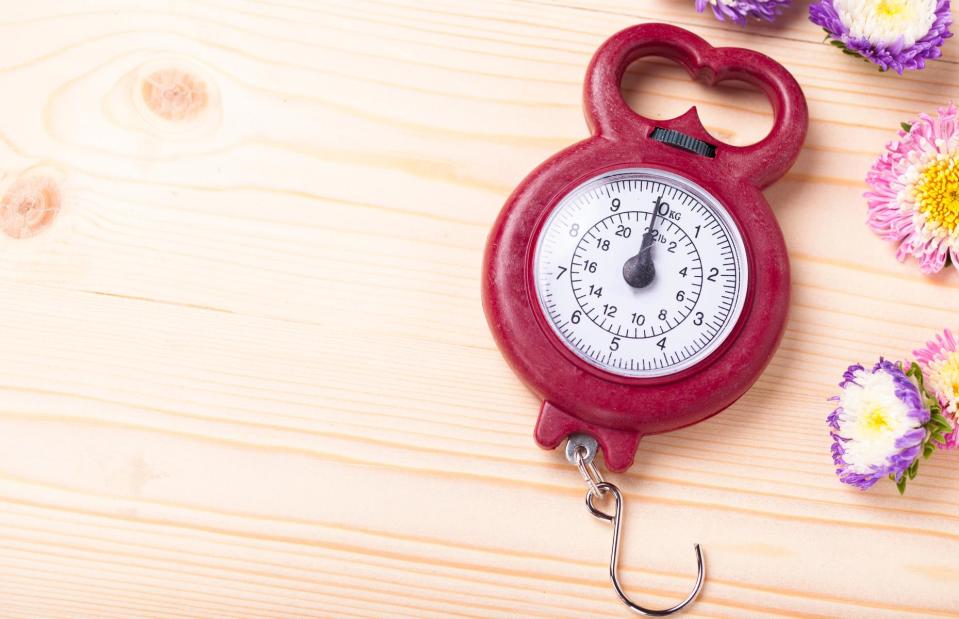
Dragonskydrive/Shutterstock
Granted, excess baggage fees are a pain, but flying in your biggest, heaviest clothes may not be a better option. For a start, you’ll be hot and horribly uncomfortable. Back in 2015, a Scottish boy band member famously passed out from heat exhaustion mid-flight while wearing 12 layers of clothes. To avoid paying the excess luggage charge, he donned six T-shirts, four sweaters, three pairs of jeans, two pairs of tracksuit bottoms, two jackets and two hats. The moral of the story? Check your luggage allowance and stick to it.
Women shouldn't travel alone
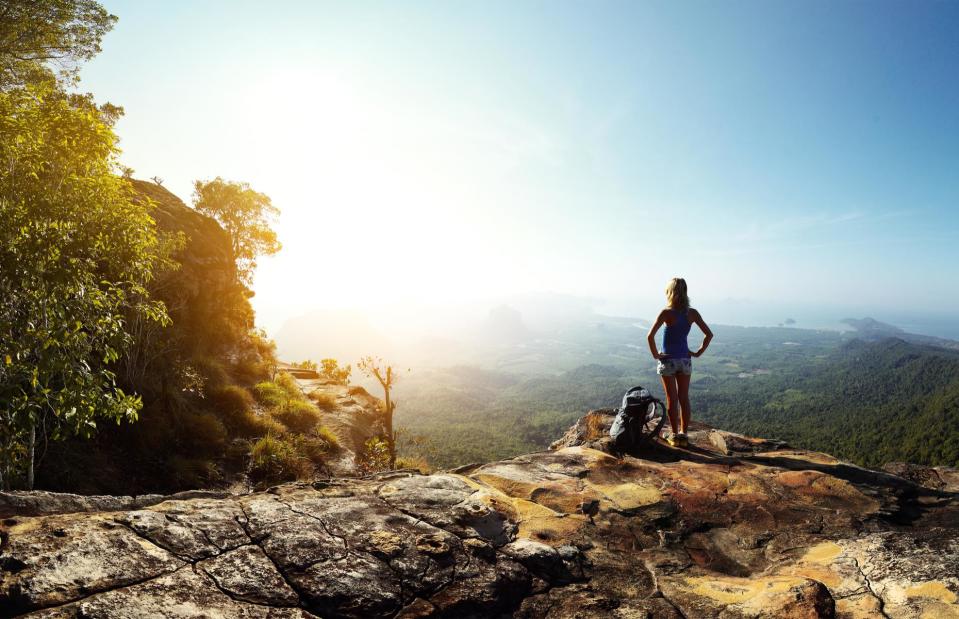
DudarevMikhail/Shutterstock
Tell a well-meaning relative you’re off travelling alone, and chances are you’ll be met with horrible tales of female backpackers meeting untimely ends. But solo travel is empowering. Plus, it’s likely you won’t actually be on your own that much – you’ll meet a host of other people in similar situations and will soon make friends along the way. Just take sensible precautions, observe local customs and be risk-aware, as you would be at home.
Urinate on a jellyfish sting
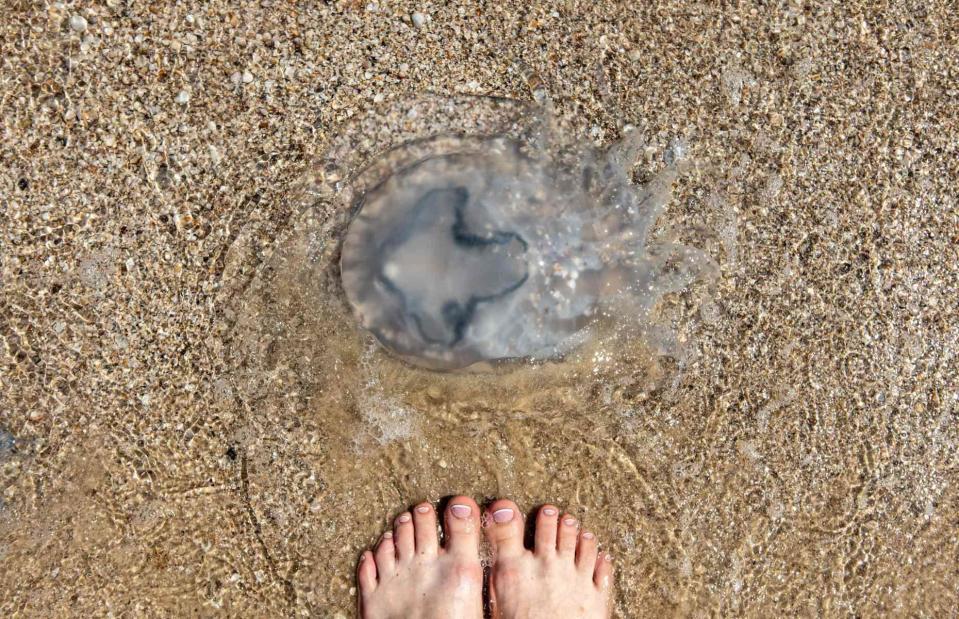
Katerina Klio/Shutterstock
Friends fans will fondly remember the episode where Monica gets stung by a jellyfish, only for Chandler to pee on it in an attempt to stop the pain. In reality, experts don’t advise treating a sting with urine – in some cases it can even make the symptoms worse. Rinsing with hot water and taking an antihistamine is a far better – and more hygienic – solution.
Wear a suit for a free upgrade

JacobLund/Shutterstock
Gone are the days when dressing like a high-flying financier could score you a free upgrade. These days, travelling off-peak, flying solo (it’s easier to upgrade one person than a group) and simply being polite will stand you in better stead. That said, maybe give your ripped jeans a miss.
Fly with your feet in brown paper bags
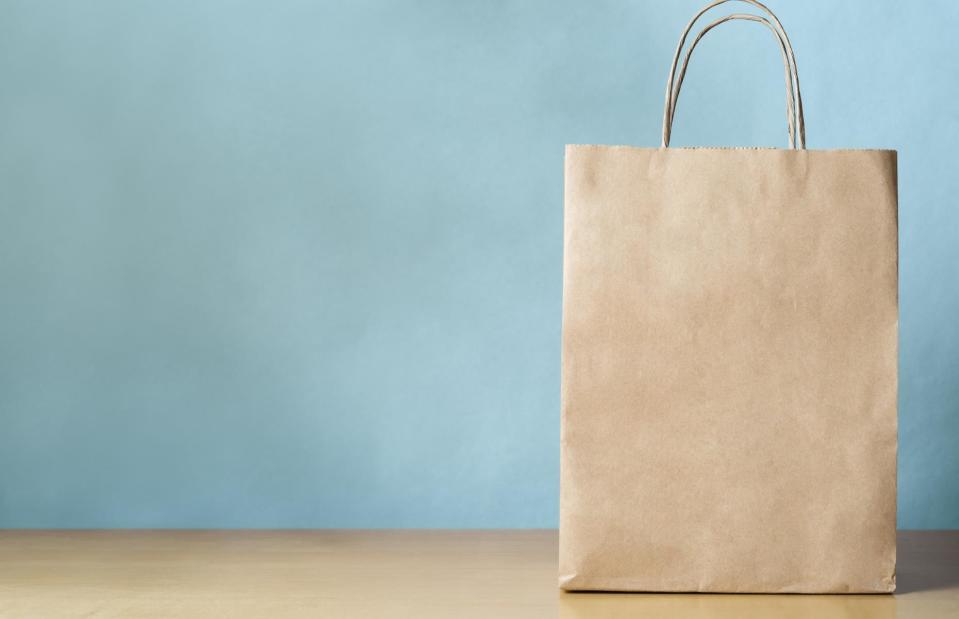
Frannyanne/Shutterstock
Yes, people really have done this, under the impression it would help them beat jet lag. You’ll be far better off (and look less ridiculous) if you set your watch to your arrival destination when you take off, keep hydrated and ‘live’ in local time as soon as you arrive.
Drink the local tap water to lose weight
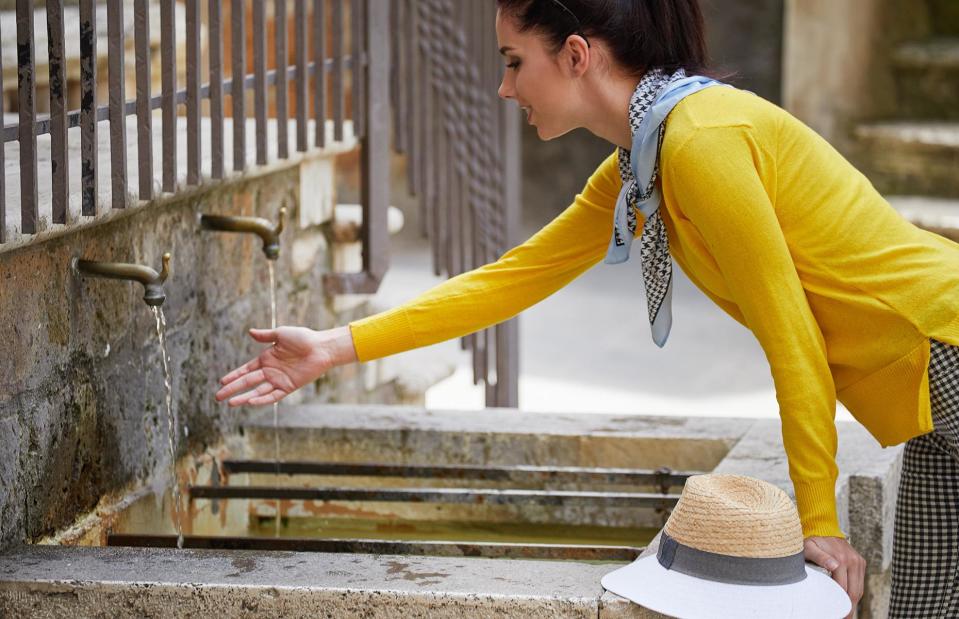
Zoom Team/Shutterstock
Drinking untreated tap water is at best risky and, at worst, stupid. Yes, if you get diarrhoea you’ll no doubt fly home a little lighter as a result, but you’ll also ruin your holiday. If you’re really unlucky, you could wind up in hospital, hooked up to a drip. Unless you know the local water is safe, stick to the bottled stuff and avoid having ice in your drinks.
Board kids on the plane first
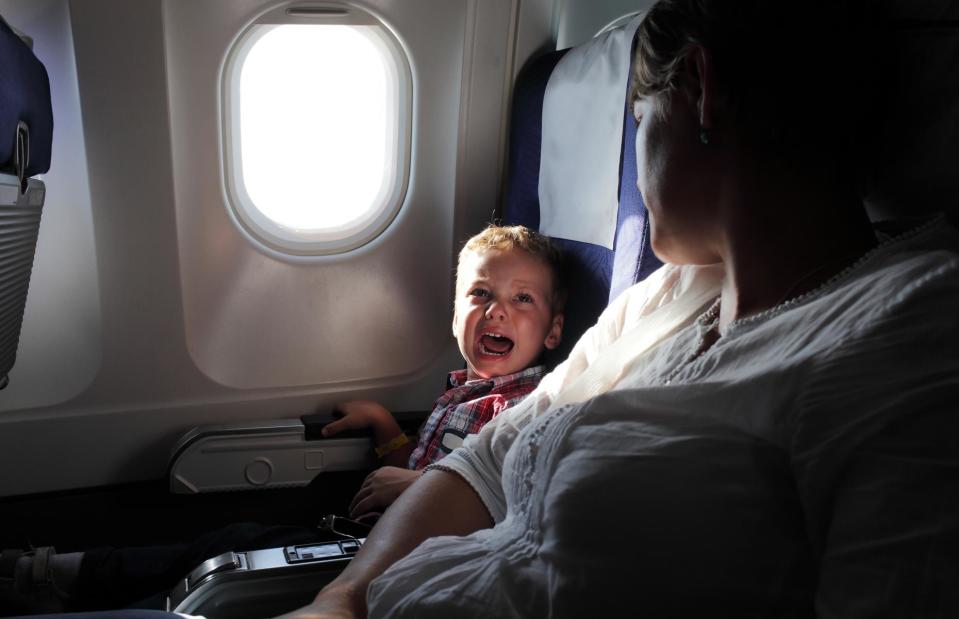
ChubykinArkady/Shutterstock
Many airlines offer families with small children the chance to board the plane first. To the uninitiated, this may seem like a great idea, and you rush ahead, eager for the chance to get settled. Fast forward 20 minutes and your kids may have already exhausted every toy you packed, eaten half their snacks and started to fidget in their seats – and you’re still sitting firmly on the runway. Our advice? Pre-book your seats and board in your own time.
Never visit a place in peak season

DonLand/Shutterstock
Yes, it may be more expensive and yes, it’s no doubt more crowded, but bear in mind that in some places peak season is popular for very good reasons. If you follow this mantra, you’ll never see New England in the fall, or explore the Galapagos during the seal breeding season.
Drink gin and tonic to avoid malaria

voloshin311/Shutterstock
Some tonics contain quinine, which has anti-malarial properties. But while it seems like a great excuse to indulge in a cheeky G&T or two, you’d need to drink over 60 litres of tonic for it to make a dent, and that in itself would be a recipe for disaster. The myth allegedly stems from the 19th century, when soldiers in India mixed doses of quinine with gin to ward off the disease. Instead, we'd advise sleeping under a mosquito net, wearing clothing that decreases exposure, taking prescribed anti-malarial tablets and using a DEET insect repellent.
Get a passport cover to protect your documents
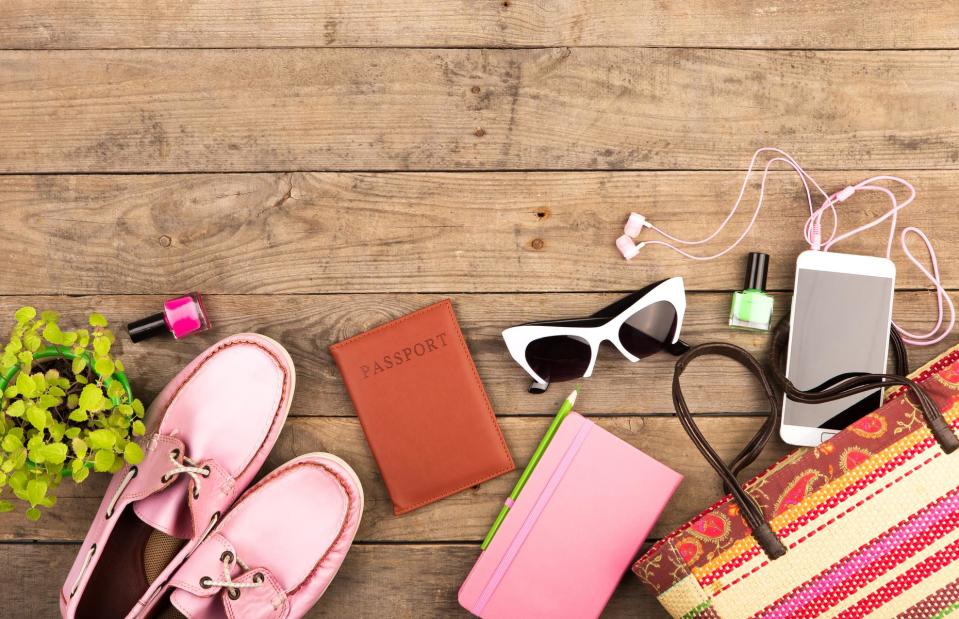
GoodMood/Shutterstock
Granted, a passport cover can look smart and protect your passport from minor spillages, but some customs officers will just ask you to remove it when they check your ID. Passport control is already a pretty drawn-out process, so avoid making it any more painful than it needs to be.
Pack using packing cubes
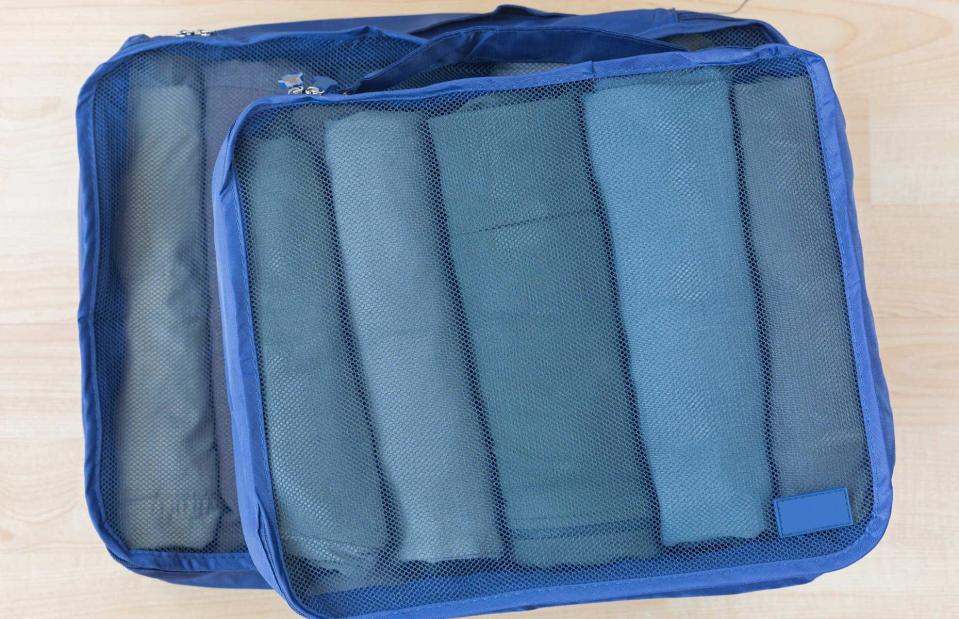
sasimoto/Shutterstock
Packing cubes may give you more room in your suitcase, but that could just mean you’ll end up shoving more in, leading to an even heavier case. That said, they can be handy when packing light but bulky ski gear, or if you’re trying to squeeze all your kit into your cabin bag.
Save loads on treats in duty free

Sorbis/Shutterstock
There’s something about duty free that makes some of us lose all reason and end up splashing the cash. But do you really need that new bottle of perfume or that giant Toblerone? Picking up tax-free items at the airport might make us feel like we're getting a sweet deal, but it's only a bargain if you need it in the first place. And besides, it doesn't always work out cheaper, so it pays to shop around as different items are taxed at different prices.
Pop a sleeping pill on the flight
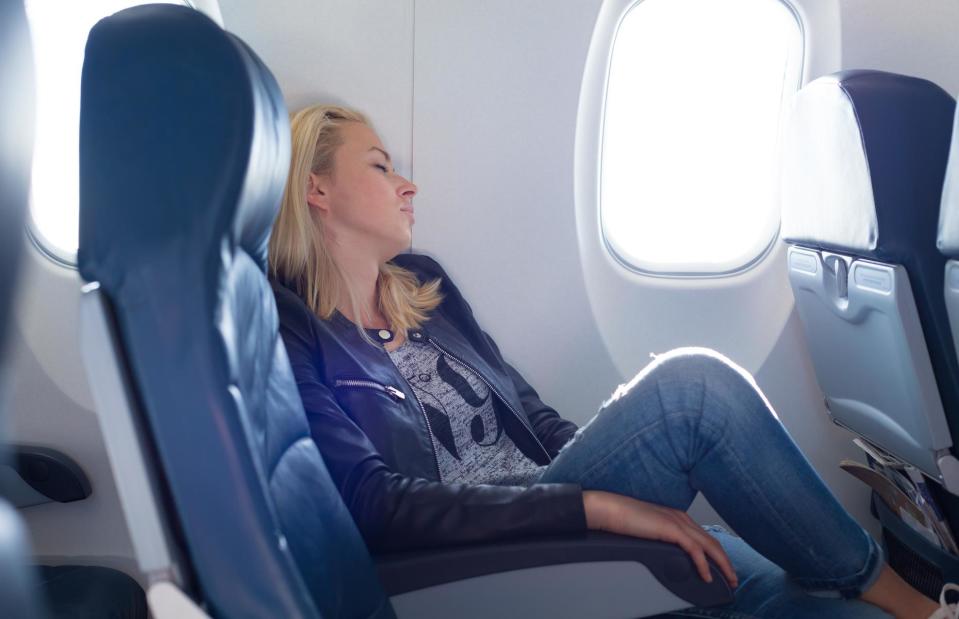
MatejKastelic/Shutterstock
Faced with the thought of struggling to snooze through a flight, it’s tempting to pop a sleeping pill. But this course of action can be fraught with complications. Take the wrong type of pill (some are longer lasting than others) at the wrong time, and you could spend the first few hours of your holiday feeling horribly groggy. Likewise, knocking yourself out for a prolonged, deep sleep in a cramped position could increase your risk of DVT.
Pack emergency traveller’s cheques
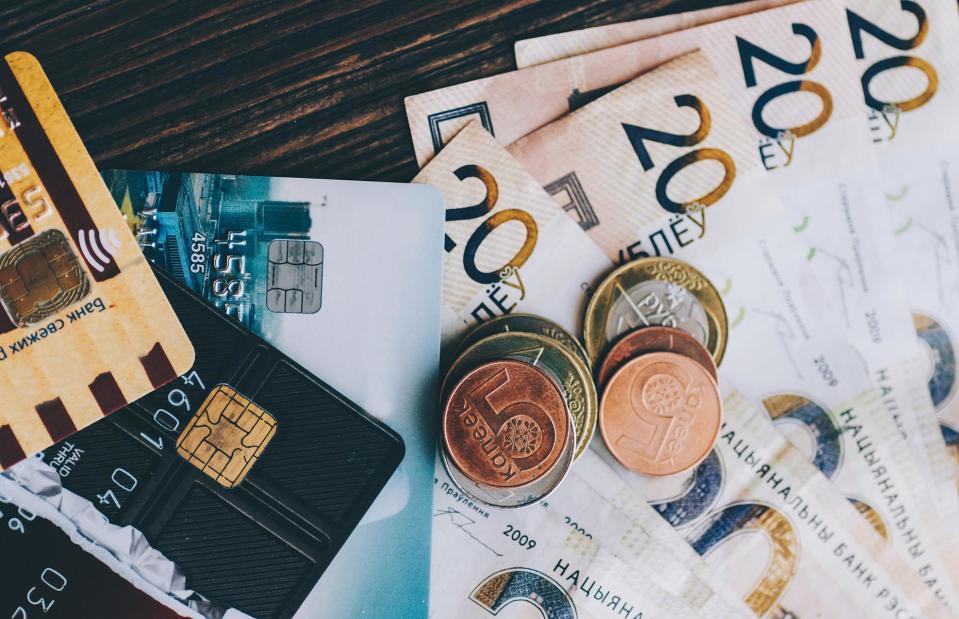
Ray Bond/Shutterstock
Years ago, few backpackers left home without a stash of emergency traveller’s cheques. But thanks to the worldwide explosion of ATMs and steady decrease in the number of retailers and banks that accept them, they’re less essential than they once were. Instead, consider using a prepaid travel card, which you load with funds before you go.
Don’t bother booking a hotel, just rock up
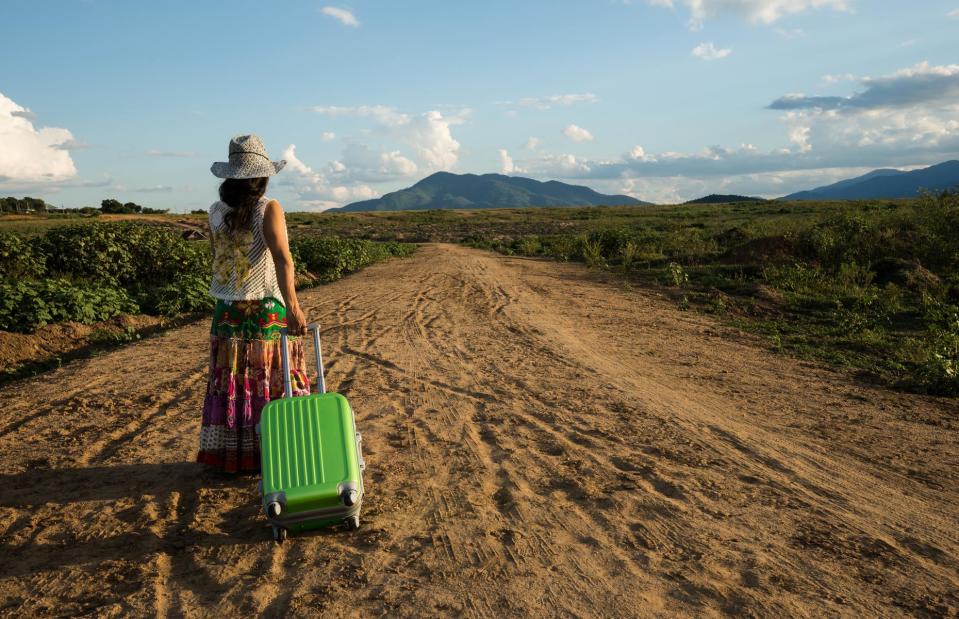
Oldphotographer/Shutterstock
Spontaneous travel can be exhilarating for sure, but there’s not a lot to be said for staggering off a long-haul flight and dragging heavy luggage around as you're turned away from a series of fully-booked hotels. If you want to be spur-of-the-moment, why not pre-book your first night or two to make sure you're well rested, then take things from there?
Roll your clothes, don't fold
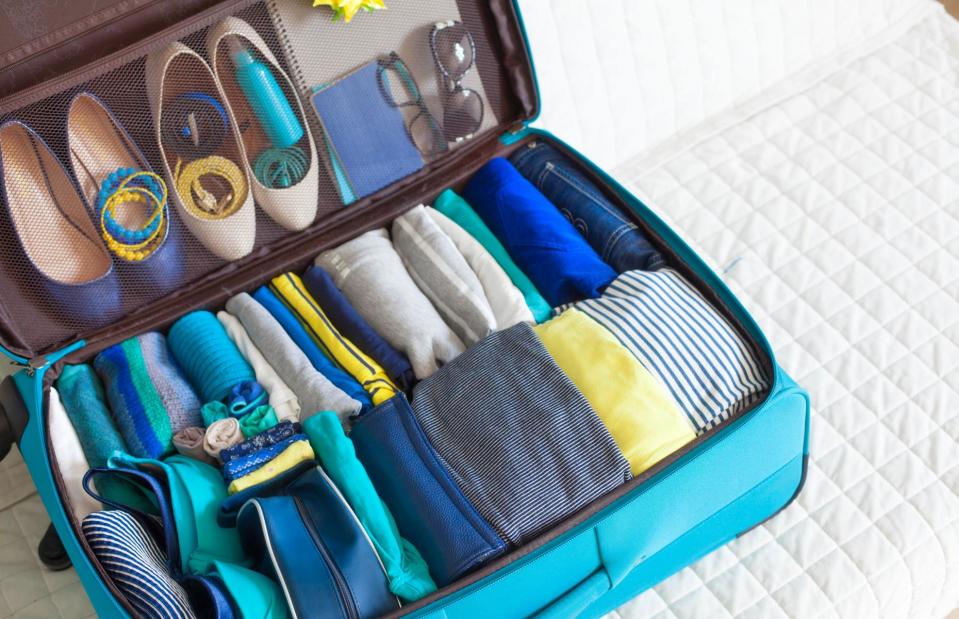
KostikovaNatalia/Shutterstock
The roll-versus-fold debate is hotly contested and will no doubt rage for years to come, but in reality there’s no one-size-fits-all answer. Those in the rolling camp are convinced it maximises space and minimises wrinkles, whereas folders complain it creates creases and has no bearing on how much you can squeeze in. The answer? It comes down to personal preference, and what you need to pack. Linen shirts, for example, will probably be better folded (although no doubt rollers will disagree).
Plan your itinerary in detail
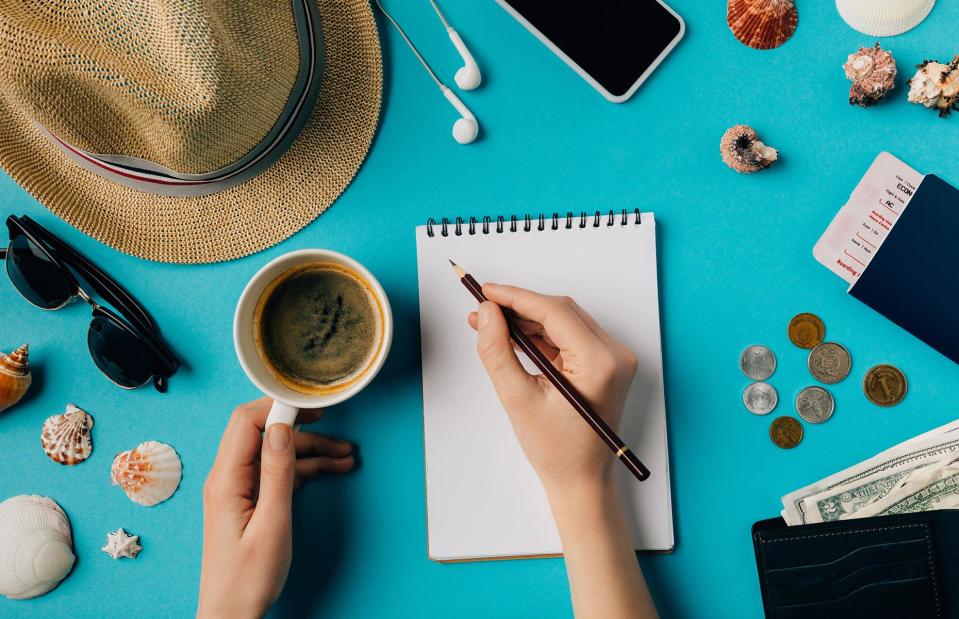
LightField Studios/Shutterstock
If you’re a planner, it’s tempting to organise your travel itinerary down to the tiniest micro-detail. But try taking a small step back instead. By giving yourself a little bit of wriggle room, you can take advantage of surprising local tips, or jump at an unexpected opportunity. You’re also taking the pressure off, which makes unanticipated delays less stressful to deal with.
Book your flights last-minute
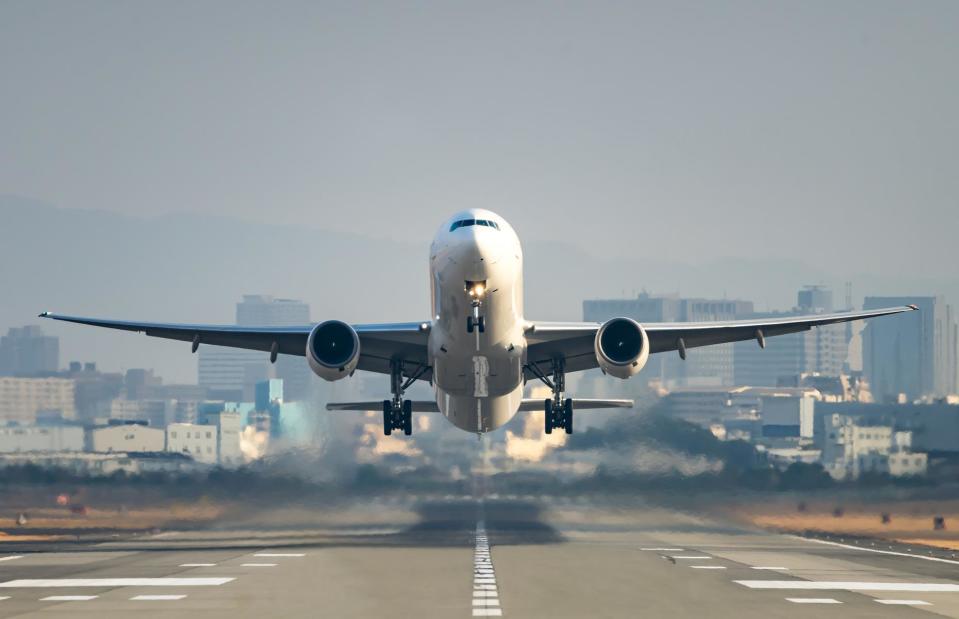
Motive56/Shutterstock
Granted, leaving things until the last minute can occasionally pay off, especially if you’re prepared to be flexible with your date and destination. But as a general rule, the earlier you book your flights, the better the deal.
Reuse last year's sunscreen
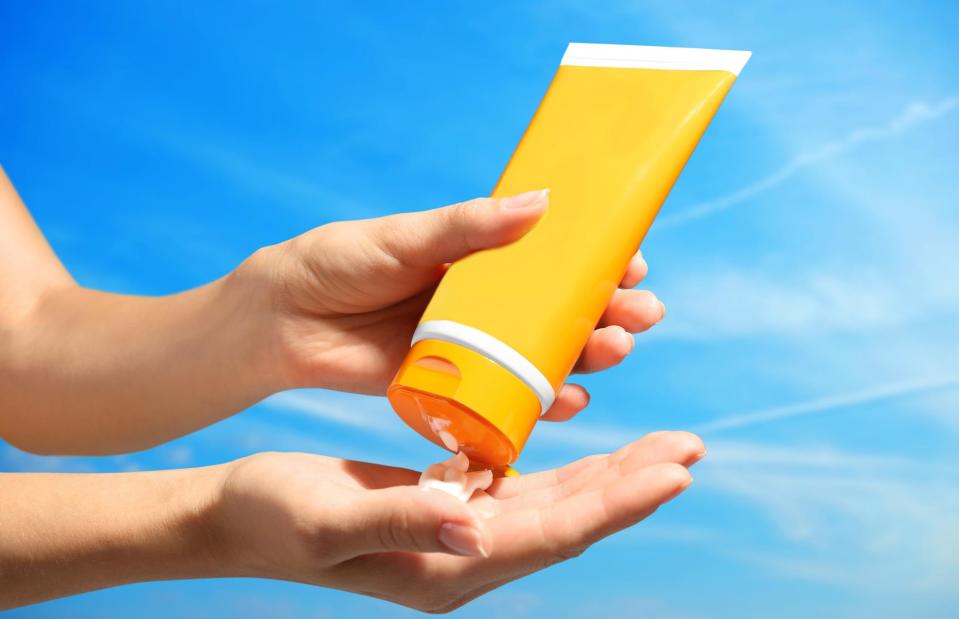
AfricaStudio/Shutterstock
You're packing for your holiday and, to your delight, you unearth a bottle of sunscreen from the depths of the cupboard. You’ve no idea when you bought it, but it doesn’t go out of date, right? Wrong. Like most products, sun lotion has a use-by date. And when it comes to skin protection, you’d be wise to heed it. Check the box or bottle for the expiry or, if there’s no date, chuck it out after a year.
Don't bother with travel insurance
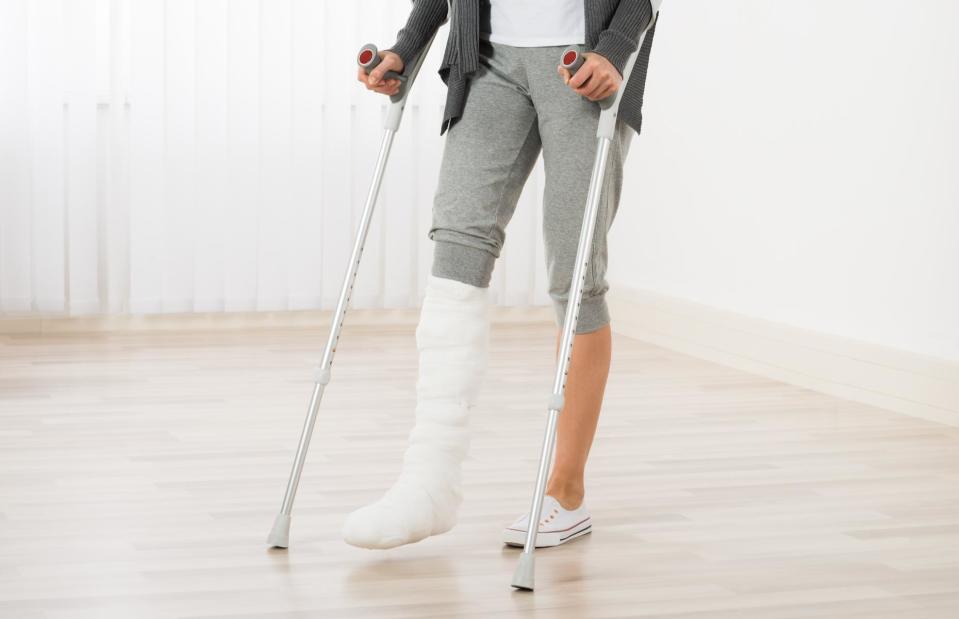
AndreyPopov/Shutterstock
It can be tempting not to bother with travel insurance – it’s an added cost, you’ve never had to claim in the past and you don't know if they’ll just wriggle out of paying up. But, if you unexpectedly fall ill or have a serious accident abroad, the costs can be eye-watering if you're uninsured. The US is particularly notorious for its pricey healthcare system, where certain circumstances could set you back hundreds of thousands of pounds.
Sit by the emergency exit to survive a crash
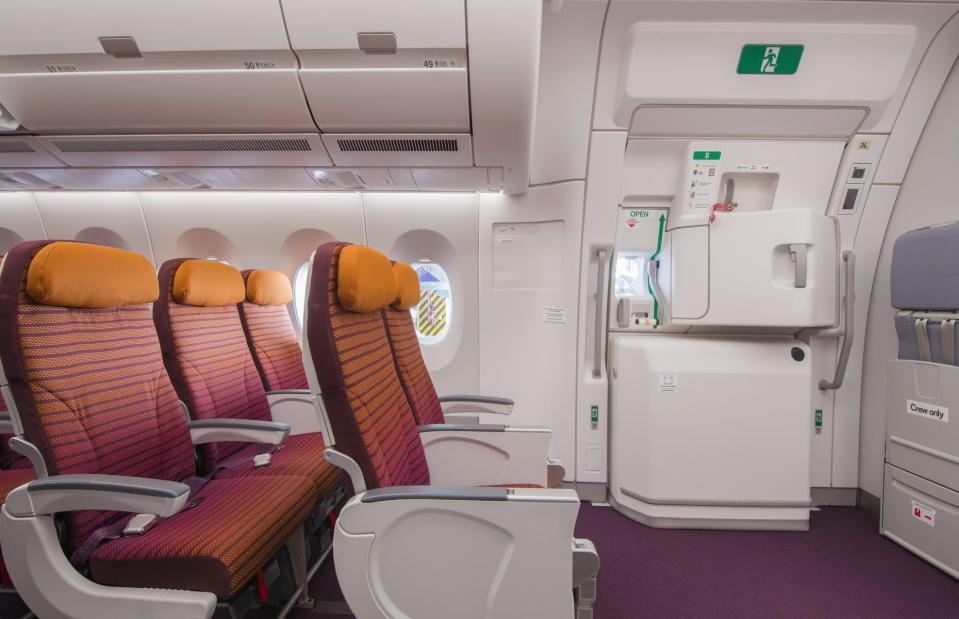
Anuchamaneechote/Shutterstock
Nervous flyers often make a beeline for the seats around the emergency exit. But in reality, each plane incident or crash is its own unique set of circumstances, meaning there isn't a definitive safest seat. But it's worth remembering that air travel is statistically the safest mode of transport – the odds of losing your life in a plane crash are about one in 11million, compared to one in 101 in a car.
Always take a guided tour
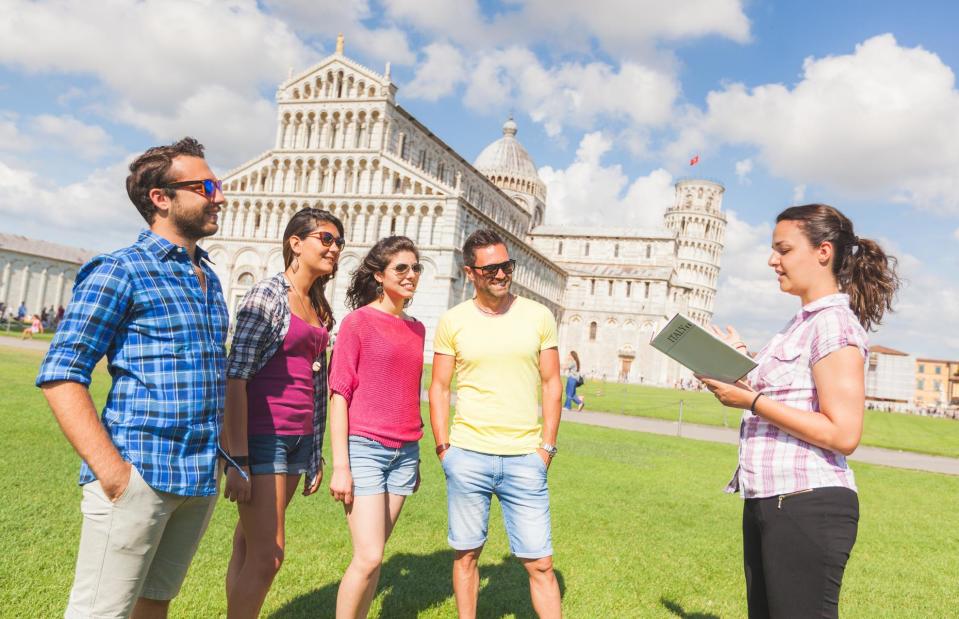
WilliamPerugini/Shutterstock
Guided tours have their place but, unless you like being shepherded around, don't assume they are the only way forward. In some destinations, they may be the only option and, if you’re travelling solo or with kids, you may prefer someone else to do the legwork. But there’s also a lot to be said for the freedom that comes with taking things at your own pace.
Eat garlic to repel mosquitoes
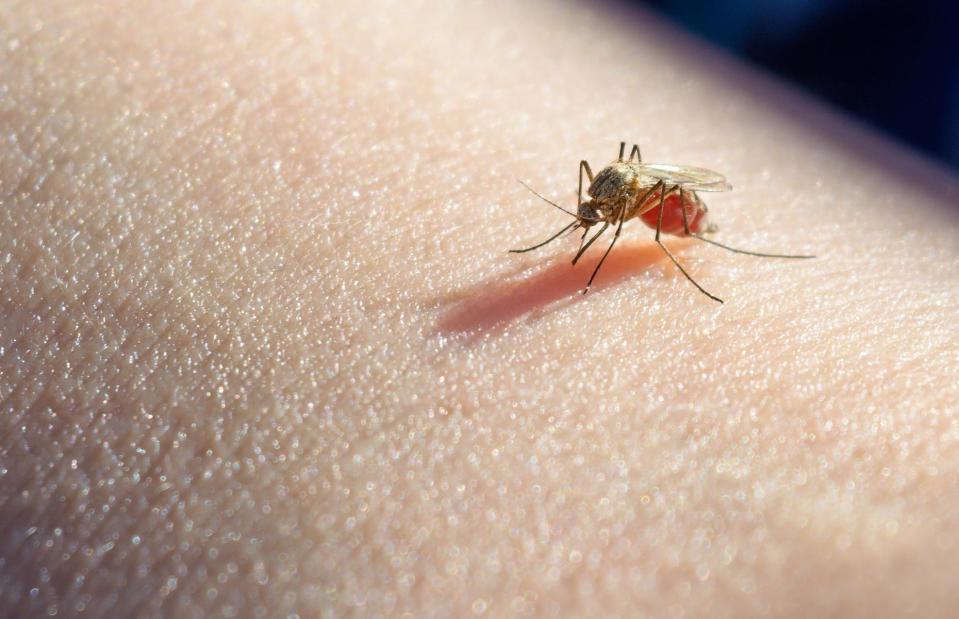
AlexanderPenyushkin/Shutterstock
It’s often said that the sulphur compounds in garlic can help ward off mosquitoes, but the chances are you’ll be repelling everyone around you too. Instead, using anti-mosquito sprays is the far more sociable option.
Pack an outfit for every day
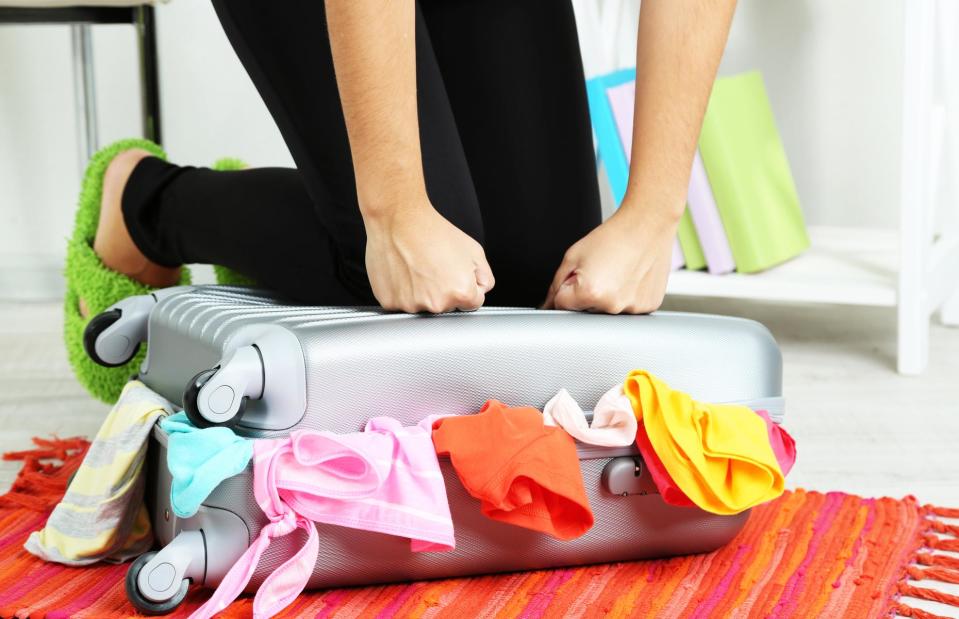
Africastudio/Shutterstock
Remember the last time you packed for a holiday? You dutifully squeezed in an outfit per day plus a few for the evenings, before adding a healthy dusting of shoes into the mix. Then you sat on your bulging suitcase, vainly attempting to close the straining zip. Fast forward a fortnight, how many of those clothes did you actually wear? Chances are, at least a third remained untouched. As a rule of thumb, lay out your packing, then get rid of half before loading it into your suitcase.
Don't travel with kids
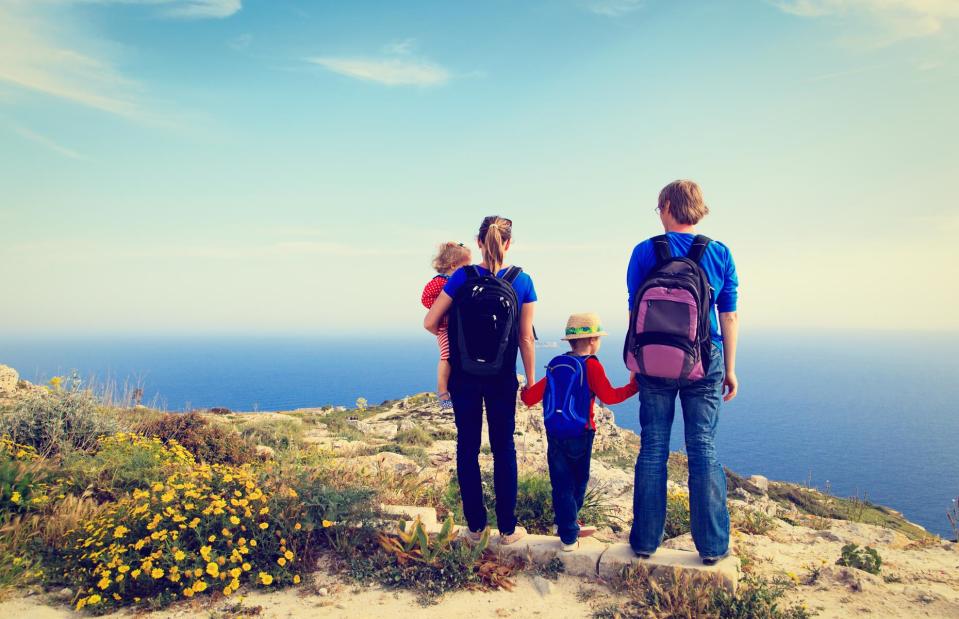
NadyaEugene/Shutterstock
Ignore the doomsters – travelling with young children is entirely possible. Yes, you might have to take a bit more kit and yes, you might have to adjust your expectations (you probably won’t be going potholing), but you’ll see the world through their eyes. Having a young family in tow forces you to slow down and really enjoy your surroundings, making you appreciate the world in ways you didn’t before. Just remember to pack a sense of humour. And a travel potty.
Use AI or social media to plan your trips
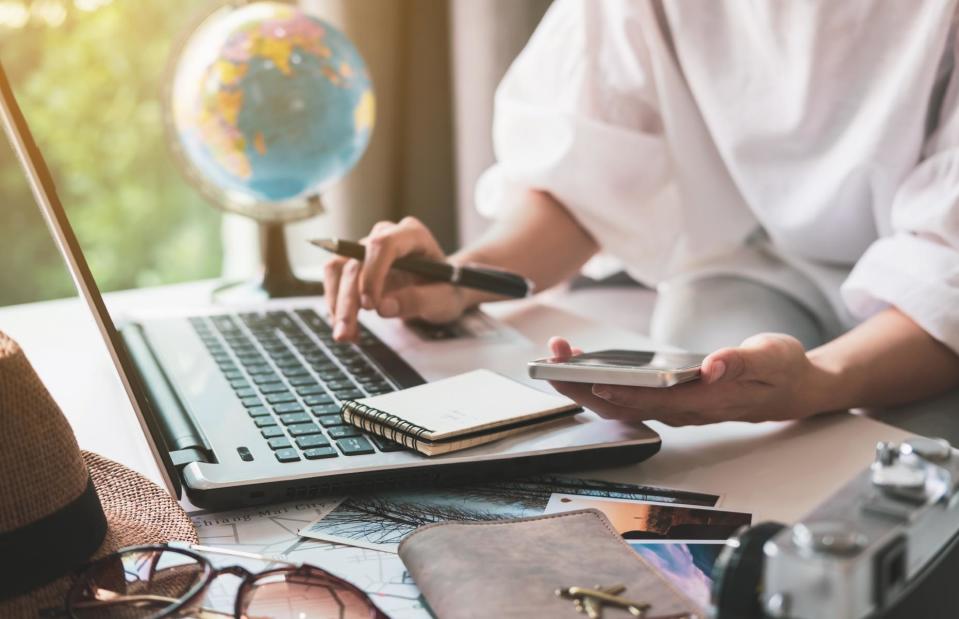
kitzcorner/Shutterstock
We're hearing of an increasing number of travellers asking bots like ChatGPT to plan their itineraries, but trusting artificial intelligence – which mines untraceable sources for recommendations – to design a nuanced trip could land you a one-way ticket to disappointment. Likewise, don't visit that temple in Bali or that restaurant with the Eiffel Tower view just because you saw them on Instagram. Social media is renowned for curated, filtered content that might look beautiful, but rarely paints the full picture of a place.
Skip the tourist traps

SCStock/Shutterstock
What do Rome's Colosseum, Barcelona's Sagrada Familia and the Pyramids of Giza all have in common? They're all among the world's most popular tourist attractions – and they're actually worth the hype. Often these so-called 'tourist traps' have earned their reputations for good reason, so don't avoid them just because everyone else visits them too. To better your chances of dodging crowds, time your visit for first thing in the morning or just before admission ends for the day.
Now see what Europe's most famous attractions looked like before tourism


